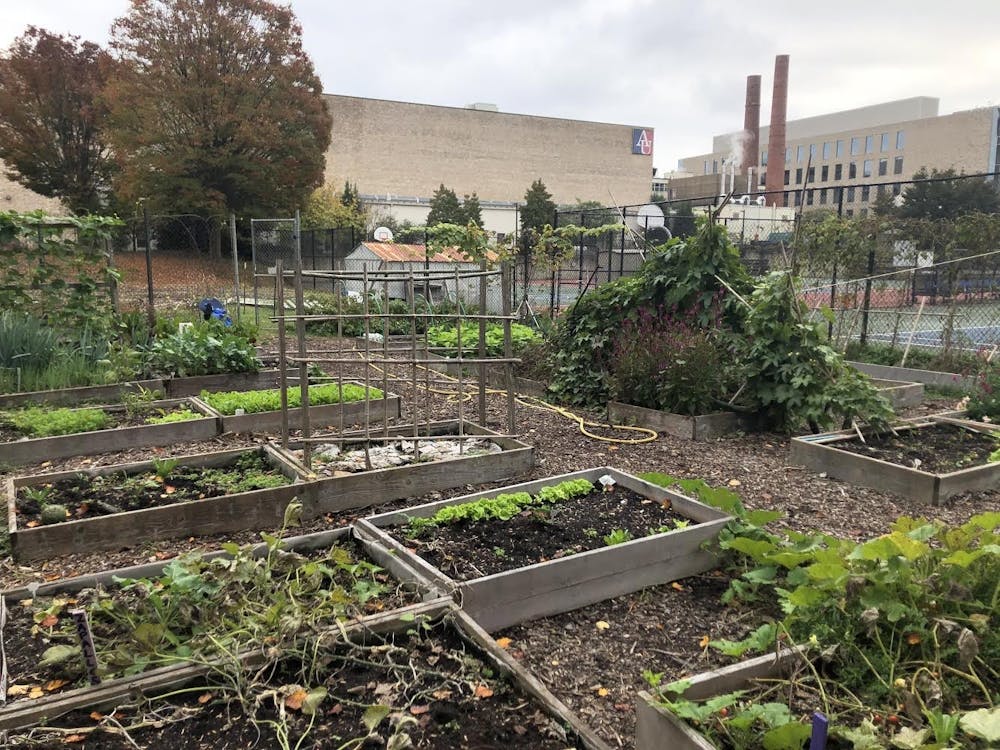The American University Community Garden first provided students with a way to connect back to the environment. Now, even in the midst of the coronavirus pandemic, it’s blossomed as a place where students are able to learn, reflect and find community.
School of International Services junior and the garden’s president, Sydney Spencer, said that the garden gives students a space to try their hand at gardening, something that isn’t very available in the D.C. area.
“It’s crazy how easy it is to produce food when you have the supplies and the space,” Spencer said. “It’s such a shame that there’s so much working against the general public that prevents people from being able to garden.” While D.C. is home to many community gardens, many of them come at a cost or require a spot on a waitlist or lottery.
Spencer said that the garden attracts students from all across the University’s student body, representing different schools and years. Even graduate students have been involved with the garden.
“Just as we walk through and observe the plants and how they change, [and] the garden and how it changes every time we enter, I have that same feeling with the folks that I’m working with,” Spencer said. “Every time I talk to them, I hear a little bit more about what their life is like and what their experience with nature, and their connection to the Earth is like.”
The garden wasn’t always as large as it is now. Adjunct professor Jerri Husch served as the club’s mentor and created the garden. Devika Knafo, a recent spring 2021 Kogod graduate, was one of the first students to work alongside Husch and become involved with the AU community garden.
“I came in during the day not expecting to stay there,” Knafo said. “And then I ended up helping for a few hours and I was like this is awesome, when can I come back?”
Despite the pandemic, the AU community garden has significantly grown from the first small garden to now three different gardens across campus.
The first garden is the largest one and is located near the tennis court on campus. According to Spencer, this garden is used for growing experimental plants, where within the controlled environment members of the garden can take notes on how plants respond and what patterns occur in reaction to changes made within the environment.
The second garden is the “companion garden,” located between the library and the McKinley building. This garden is dedicated to understanding the relationship between growing two different plants next to each other and how they respond to that and build off of each other, Spencer said.
The third and most recent garden, located on top of the parking garage in the SIS building, is going to be used for growing herbs. Spencer said that members within the garden’s community have shown an interest in growing herbs for tea. The garden will also be used as a place where all members of the student body will be able to use it for meditative purposes. Some herbs will have signs that will help to educate the student body on the herbs uses for health and wellness.
All gardens with the exception of the first garden, which is currently locked in order to maintain the controlled environment, are open to all members of the student body. Both Spencer and Knafo said that their time in the garden has been deeply and positively influential to them.
“It could be a place where people could just sit and meditate, it could be a place where people could just sit and find their own peace, it could be a place where people could learn about the Earth to reconnect with things,” Knfao said.





